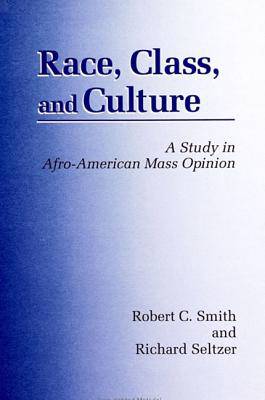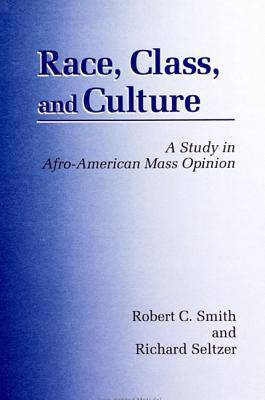
- Afhalen na 1 uur in een winkel met voorraad
- Gratis thuislevering in België vanaf € 30
- Ruim aanbod met 7 miljoen producten
- Afhalen na 1 uur in een winkel met voorraad
- Gratis thuislevering in België vanaf € 30
- Ruim aanbod met 7 miljoen producten
Zoeken
€ 145,45
+ 290 punten
Uitvoering
Omschrijving
Race is arguably the most profound and enduring cleavage in American society and politics. This book examines the sources and dynamics of the race cleavage in American society through a detailed analysis of intergroup and intragroup differences at the level of mass opinion. The ethclass theory, which examines the intersection of ethnicity and class, is used to analyze interracial differences in mass attitudes. This analysis yields three clusters of opinion that distinguish African Americans from whites -- religiosity, interpersonal alienation, and political liberalism. The authors then examine the intragroup sources of these opinion differences among blacks in terms of class, gender, age, region, and religion. While the authors demonstrate an embryonic trend of more black middle class opinion agreement with whites, the book confirms the ethclass character of the black experience whereby race and race consciousness are still more significant than class in shaping black attitudes. Given the growing class bifurcation in black America and the continuing debate about its significance in shaping black attitudes and behavior, this book offers a refreshing new analysis of the homogeneity as well as heterogeneity of black mass public opinion.
Specificaties
Betrokkenen
- Auteur(s):
- Uitgeverij:
Inhoud
- Aantal bladzijden:
- 222
- Taal:
- Engels
- Reeks:
Eigenschappen
- Productcode (EAN):
- 9780791409459
- Verschijningsdatum:
- 1/07/1992
- Uitvoering:
- Hardcover
- Formaat:
- Genaaid
- Gewicht:
- 435 g

Alleen bij Standaard Boekhandel
+ 290 punten op je klantenkaart van Standaard Boekhandel
Beoordelingen
We publiceren alleen reviews die voldoen aan de voorwaarden voor reviews. Bekijk onze voorwaarden voor reviews.











